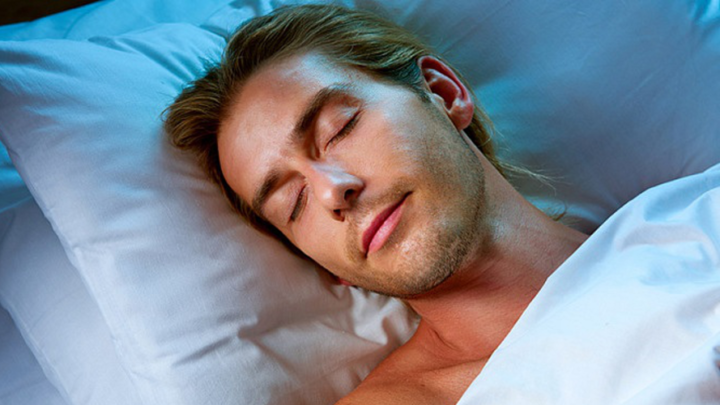It’s that time of the summer break when camps and family vacations are winding down and parents and kids eagerly look forward to another school year....
10 Things You Need to Know to Get the Best Sleep You’ve Ever Had!
Sleep is an important basic necessity of your body in order to allow proper daytime energy, cardiovascular health and weight maintenance, and overall mental health and mood balance. However, sleep can be very elusive, and it can change over the course of your life. Below are some important reasons why you can develop problems sleeping, and some solutions that can really help or rid the problem altogether.
1. Beware the Computer
Now more than ever, we are spending quite a bit of time on the computer, or tablet, or smart-phone. This can easily turn you into a late-night owl, and rob you of precious night-time sleep. Make sure to structure or limit your on-line or screen-time so it doesn’t intrude into your sleep-time.
2. Rid the Stimulants
Common daily intake of caffeine and alcohol can affect your sleep. The caffeine in coffee and tea can keep your nerves and mind awake, so it’s best to avoid these beverages past the mid-afternoon hours. Regarding alcohol, it has been assumed that it helps sleep, however recent research published in the journal Alcoholism: Clinical & Experimental Research found that despite the early sleep-deepening effects of sleep in the first half of the night, there were significant problems later, including more frequent waking, longer periods of being awake in the night, and less total sleep time particularly in women. Medications can also affect your sleep and it’s worth speaking to your doctor if it has changed while on medication.
3. Address the Stress
It’s no surprise that stress affects your sleep, keeping your mind active and racing in the night. If you cannot eliminate your daily stress, then balance it out with exercise and relaxation techniques such as relaxing breathing exercises and meditation to calm the mind and relax the body. Note that late night exercising may be more of a stimulant, so try and exercise earlier in the day.
4. Reduce Night Time Urination
Simple changes like avoiding drinking fluids three to four hours before bedtime can reduce waking to urinate. Strengthening the pelvic floor muscles can also help, such as using kegel exercises. Men commonly have prostate enlargement issues that can be improved using herbal medicines such as Saw palmetto or Nettle.
5. Mind Your Mood
A number of cases of poor sleep are due to mood disorders such as depression or anxiety or other psychiatric conditions. Be sure to see your doctor if you think this may play a role in your sleep.
6. Put the Lights Out
Light in your bedroom should be at an absolute minimum. We know that light triggers hormonal effects that can disrupt sleep, and blunt your body’s natural production of the hormone melatonin. This is why it’s useful to use black-out blinds over your windows, and reduce other sources of light where you sleep.
7. Nutrition Support
In many cases, addressing nutrient deficiencies can really help your sleep. Some common nutrient deficiencies that can affect sleep include vitamin B12 and magnesium. For example, magnesium can help those who have restless legs or for people who get a lot of cramps or tightness in their muscles. Often taking an Epsom salts bath before bed helps, since it contains magnesium-based salts.
8. Changes with Aging
The deeper levels of sleep (stage three and stage four) can dramatically reduce as you age. It may be a hormone-related problem, such as from decreasing estrogen in women, or testosterone in men. It can also be related to nutrient deficiencies which can happen with aging. Getting hormone and nutrient screening tests and related therapies can point you in the right direction.
9. Reduce the Pain
One of the common reasons for disturbed sleep is pain. By addressing the pain, your sleep should improve. From a naturopathic herbal perspective, passionflower, valerian, California poppy, and other herbs may be effective.
10. Address Your Heartburn
If you eat late, it is common that you can develop a painful or burning discomfort when you lie down. It’s best to avoid eating three to four hours before bed, particularly eating heavy and spicy meals.
Related Posts
Sleep is an
essential human function. Sleep allows our physical body to rest and recover
from the events of the day. It also helps to recharge our brain and...
Dr. Adrienne Zarifis is a Naturopathic doctor with a passion for education. In this episode of Your Wellness Now, she discusses common issues people experience...
Sleep is an essential human function. Sleep allows our physical body to rest and recover from the events of the day. It also helps to recharge our brain and...
Dr. Adrienne Zarifis is a Naturopathic doctor with a passion for education. In this episode of Your Wellness Now, she discusses common issues people experience...
Categories
- Allergy Relief
- Bell Lifestyle News
- Brain and Vision Health
- Depression
- Digestive Health
- Eating Healthy
- Energy Boosts
- Fitness
- Foods for Energy
- Heart and Lung Health
- Herbs
- Immune System Support
- Lifestyle
- Men's Health
- Mental
- Motivation
- Natural Remedies
- Nutrition
- Pain Relief
- Physical
- Recipes
- Relationships
- Sexual Health
- Skin and Hair Health
- Sleep Health
- Social
- Stress Relief
- Uncategorised
- Videos
- Weight Management
- Women's Health
- Your Wellness Now
Follow us on Twitter
#90 Bladder One for Women™ is a convenient one-a-day capsule for urinary tract health, featuring herbal extracts in… twitter.com/i/web/status/1…
May 2023Urinary tract infections - UTI: To treat or prevent? That is the question. Find out more about causes and treatme… twitter.com/i/web/status/1…
May 2023"How you feel is very important to how you look. Healthy equals beautiful." - Victoria Principal #womenshealth https://t.co/OPShoEbOXb
May 2023
© Copyright 2024. All rights reserved.




